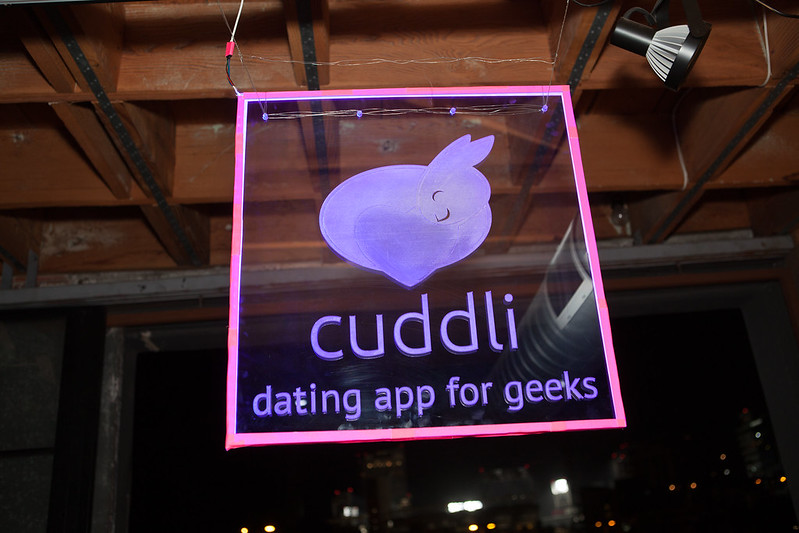Dating apps are killing dating, or so some people would have you believe. Some journalists have argued that Tinder, Grindr and all the rest have not only “ushered in a new era in the history of romance” but that they are even leading to a “dating apocalypse” by making dating an unpleasant competition for mates instead of a fun search for a partner.
But we can’t solely blame dating apps for the way people use them. Technology has always played a role in courtship rituals, from lonely hearts ads in newspapers to the cars and cinemas that helped shape the romantic trope of taking a date to see a movie. From the emergence of the telephone through to social media, dating culture is bound up and has always coexisted with technology.
Of course, apps have added new experiences to dating and helped lead to a huge shift in the way people first meet potential partners. But technology’s impact depends on the surrounding culture.
The problem with an incessant focus on apps as the main force pushing us to new frontiers in dating, is that it tends to swipe aside the dating differences among different communities, such as what actually counts as a date. Indeed, it completely ignores the role of people in shaping what dating apps are used for and how.
Context is vital
Anthropologist Daniel Miller and his colleagues addressed this point in their 2016 study, How the World Changed Social Media, which looked at social media use in nine different locations around the world. Unsurprisingly, it found different cultural contexts led to completely different uses of social media. The apps didn’t alter how people were behaving but rather people changed and repurposed the way the platforms worked for them.
Something that seemed mundane and normal in one context was almost impossible to fathom when transplaced somewhere else. For example, ethnographer Elisabetta Costa talked to women in southeast Turkey about how they used Facebook. Her participants were amazed to discover that people in some countries commonly had only one Facebook account and that it would contain their real details. “Don’t they use pseudonyms or fake profiles?” said one respondent. “I can’t believe it. How could it be possible?”.
I am making similar discoveries as part of my ongoing research in Berlin looking at the local cultural context behind dating app use. For example, one Lithuanian interviewee suggested to me that arranging a Tinder date in Berlin had completely different cultural connotations than doing so in Vilnius. The former might entail grabbing a casual beer while the latter would not be seen as a date unless it ended in dinner at a restaurant.
We should treat dating apps with the understanding that it is the users, and their particular cultural circumstances, who drive the impact of the technology. You can introduce the same piece of technology to 100 different communities and it will be used in 100 different ways. As such, dating apps are a tool embedded in the culture of a particular location.
Also, dating apps are not an isolated phenomenon. They have blossomed from a culture that already involves a large number of our daily interactions with other people taking place online. And the idea that meeting virtually is a distinct way of interacting, that it is separate and different from “real life”, is itself incorrect, because these interactions are now simply a facet of our everyday lives.
As Daniel Miller argues, we wouldn’t say that a telephone call is not part of “real life”. And so talking to people via email, instant message, social media and dating apps are all just different aspects of our broader sphere of communication.
It is certainly not the case that technology is driving people apart. There is mounting evidence to counter the idea that social media and dating apps are contributing to the problem of social ties in human relations weakening. Instead, we should think about technology rearranging how social ties are maintained, based on how culture influences the way we use the technology. The medium may change but the end product is not drastically different.
A couple in Berlin may meet via a dating app instead of through friends or work. But whether this couple are after friendship, sex or love, the odds are that their first date will still see them getting a drink at a neighbourhood bar, because that’s what people in Berlin have done for the past 30 years.



 How to support someone who is grieving: five research-backed strategies
How to support someone who is grieving: five research-backed strategies  AI is driving down the price of knowledge – universities have to rethink what they offer
AI is driving down the price of knowledge – universities have to rethink what they offer  Columbia Student Mahmoud Khalil Fights Arrest as Deportation Case Moves to New Jersey
Columbia Student Mahmoud Khalil Fights Arrest as Deportation Case Moves to New Jersey  Why a ‘rip-off’ degree might be worth the money after all – research study
Why a ‘rip-off’ degree might be worth the money after all – research study  Debate over H-1B visas shines spotlight on US tech worker shortages
Debate over H-1B visas shines spotlight on US tech worker shortages  Why financial hardship is more likely if you’re disabled or sick
Why financial hardship is more likely if you’re disabled or sick  Stuck in a creativity slump at work? Here are some surprising ways to get your spark back
Stuck in a creativity slump at work? Here are some surprising ways to get your spark back  Parents abused by their children often suffer in silence – specialist therapy is helping them find a voice
Parents abused by their children often suffer in silence – specialist therapy is helping them find a voice  Youth are charting new freshwater futures by learning from the water on the water
Youth are charting new freshwater futures by learning from the water on the water  Why have so few atrocities ever been recognised as genocide?
Why have so few atrocities ever been recognised as genocide?  The ghost of Robodebt – Federal Court rules billions of dollars in welfare debts must be recalculated
The ghost of Robodebt – Federal Court rules billions of dollars in welfare debts must be recalculated  6 simple questions to tell if a ‘finfluencer’ is more flash than cash
6 simple questions to tell if a ‘finfluencer’ is more flash than cash 
































